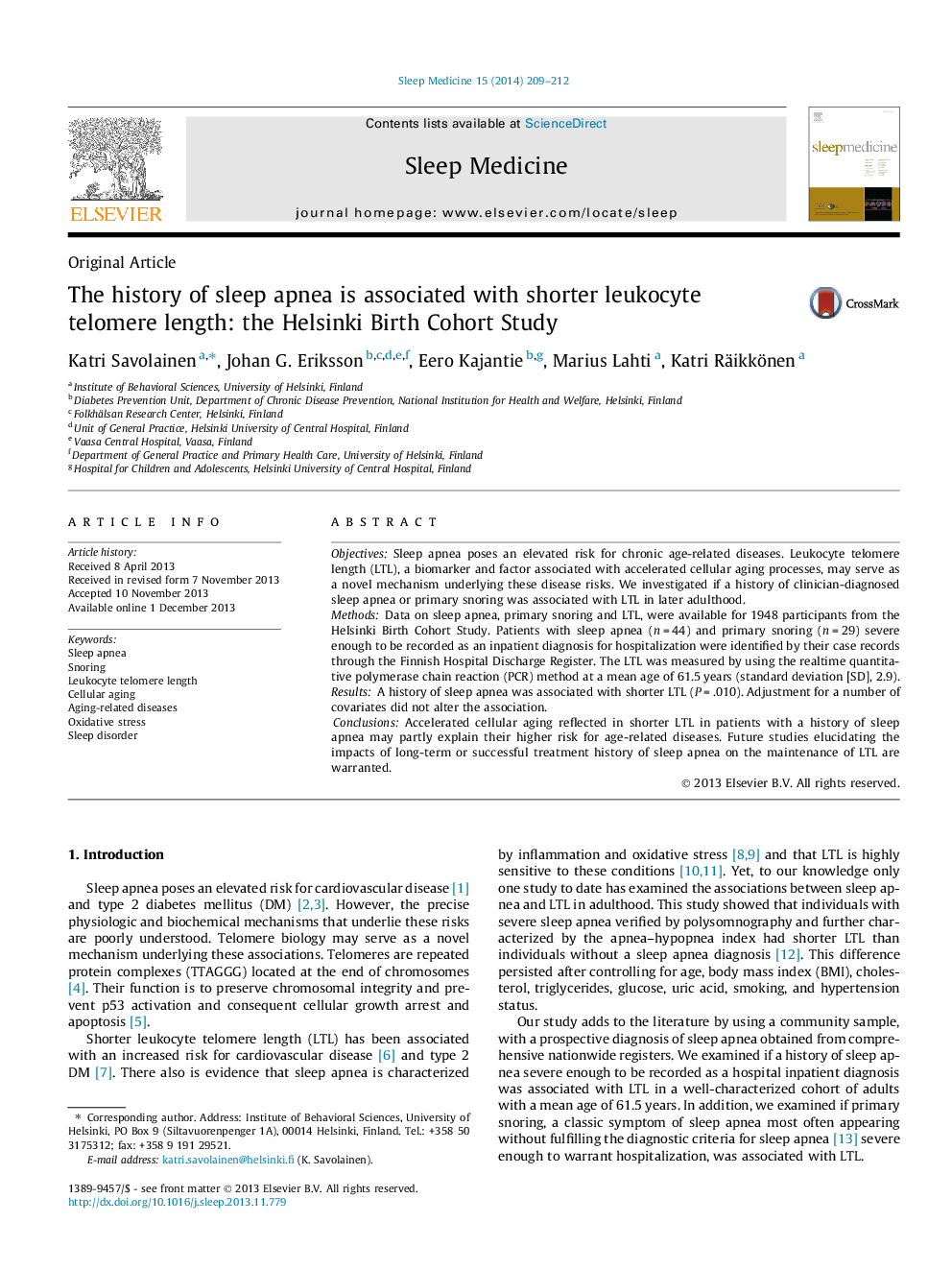| Article ID | Journal | Published Year | Pages | File Type |
|---|---|---|---|---|
| 3176243 | Sleep Medicine | 2014 | 4 Pages |
ObjectivesSleep apnea poses an elevated risk for chronic age-related diseases. Leukocyte telomere length (LTL), a biomarker and factor associated with accelerated cellular aging processes, may serve as a novel mechanism underlying these disease risks. We investigated if a history of clinician-diagnosed sleep apnea or primary snoring was associated with LTL in later adulthood.MethodsData on sleep apnea, primary snoring and LTL, were available for 1948 participants from the Helsinki Birth Cohort Study. Patients with sleep apnea (n = 44) and primary snoring (n = 29) severe enough to be recorded as an inpatient diagnosis for hospitalization were identified by their case records through the Finnish Hospital Discharge Register. The LTL was measured by using the realtime quantitative polymerase chain reaction (PCR) method at a mean age of 61.5 years (standard deviation [SD], 2.9).ResultsA history of sleep apnea was associated with shorter LTL (P = .010). Adjustment for a number of covariates did not alter the association.ConclusionsAccelerated cellular aging reflected in shorter LTL in patients with a history of sleep apnea may partly explain their higher risk for age-related diseases. Future studies elucidating the impacts of long-term or successful treatment history of sleep apnea on the maintenance of LTL are warranted.
